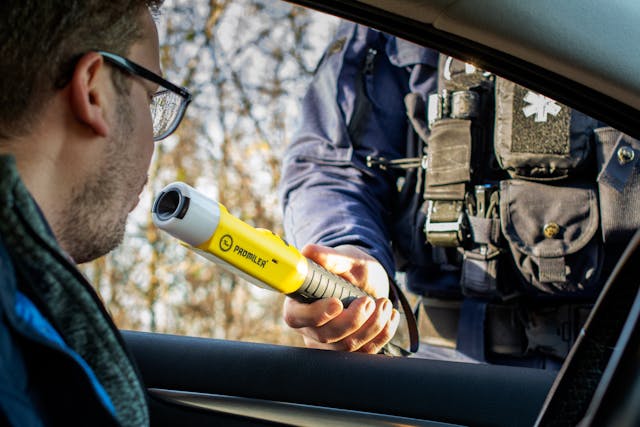Driving under the influence (DUI) and driving while intoxicated (DWI) are serious criminal offenses across the United States, both involving impaired driving due to alcohol or drugs. While these terms are sometimes used interchangeably, they often have distinct legal definitions depending on the state. Understanding the difference between DUI and DWI, and the consequences tied to each, is crucial for any driver.
This article breaks down the legal distinctions, state-by-state variations, consequences, and why the terminology matters for those facing charges or trying to make responsible decisions.
Article Breakdown
What Do DUI and DWI Mean?
At their core, both DUI and DWI refer to the act of operating a vehicle while impaired by alcohol, drugs, or both. However, the meanings of each term can vary based on jurisdiction:
- DUI: “Driving Under the Influence” typically refers to operating a vehicle while impaired by alcohol or drugs (including prescription medications).
- DWI: “Driving While Intoxicated” or “Driving While Impaired,” depending on the state, generally refers to operating a vehicle with a blood alcohol concentration (BAC) over the legal limit (usually 0.08% for adults).
Some states use both terms, assigning them different levels of severity. Others use one or the other exclusively. You can also consult with DUI lawyer Toronto.
State-by-State Differences
Each U.S. state has its own laws and terminology when it comes to impaired driving. Here are some examples:
1. States That Use DUI Exclusively
States like California, Florida, and Arizona use “DUI” as the umbrella term for all forms of impaired driving, whether the impairment is caused by alcohol, drugs, or both.
2. States That Use DWI Exclusively
States such as Texas use “DWI” for drivers who are caught driving with a BAC over the legal limit. In Texas, “DUI” is a separate charge usually applied to underage drivers (under 21) with any detectable amount of alcohol.
3. States That Use Both DUI and DWI
In New York, the two terms denote different levels of impairment:
- DWI: Driving with a BAC of 0.08% or higher.
- DWAI (Driving While Ability Impaired): A lesser charge for drivers impaired by alcohol below the 0.08% threshold or by drugs.
4. Other Terms You Might Encounter
Some states use different terms altogether, such as:
- OUI (Operating Under the Influence) – Used in Massachusetts and Maine.
- OVI (Operating a Vehicle Impaired) – Used in Ohio.
Key Legal Distinctions
1. Level of Impairment
In many jurisdictions, DWI indicates a higher level of impairment or a confirmed BAC over the legal limit. DUI may refer to any impairment, even if the driver’s BAC is below 0.08% but they are visibly impaired.
2. Substance Involved
- DUI may apply to alcohol or drugs.
- DWI often (but not always) applies to alcohol only, depending on state law.
3. Severity
Some states classify DWI as a more severe offense than DUI. Others reverse this or use only one term for all impaired driving offenses. In states that differentiate, a DWI may come with heavier fines, longer license suspensions, and potential jail time.
Why the Terminology Matters
Understanding the difference between DUI and DWI is more than just semantics, it can directly affect:
1. Legal Penalties
Whether someone is charged with DUI or DWI can impact:
- The severity of the charge (misdemeanor vs. felony)
- Fines and court fees
- Length of driver’s license suspension
- Jail or probation time
- Mandatory treatment or education programs
2. Insurance Rates
A DUI or DWI conviction can cause your auto insurance premiums to skyrocket, or result in cancellation of your policy altogether. In general, a DWI may result in higher penalties from insurance companies, as it’s often considered more serious.
3. Criminal Record
Both DUI and DWI convictions go on your criminal record and may affect:
- Job opportunities
- Immigration status
- Custody battles
- Future legal outcomes (e.g., repeat offenses)
Consequences of a DUI or DWI Conviction
Regardless of terminology, impaired driving offenses carry serious consequences:
1. Criminal Penalties
- First Offense: Fines from $500–$2,000, license suspension (up to one year), jail time (up to 6 months), and mandatory alcohol education programs.
- Repeat Offenses: Harsher penalties, including felony charges, multi-year license suspensions, and extended jail or prison time.
2. Administrative Penalties
Even if you’re not convicted in criminal court, your state’s Department of Motor Vehicles (DMV) can suspend your license based on a failed or refused breathalyzer test.
3. Ignition Interlock Devices
Many states now require first-time offenders to install an ignition interlock device (IID) that prevents the car from starting unless the driver passes a breath alcohol test.
4. Employment and Professional Licenses
Jobs requiring a clean driving record or professional license (like commercial drivers, nurses, or teachers) may be at risk after a DUI or DWI.
Defending Against DUI or DWI Charges
Legal defenses depend on the facts of the case, but common strategies include:
- Challenging the legality of the traffic stop
- Questioning the accuracy of breathalyzer or field sobriety tests
- Demonstrating procedural errors by law enforcement
- Showing that the BAC reading was affected by medical conditions or faulty equipment
Hiring a qualified defense attorney can make a significant difference in the outcome of your case.
How to Avoid a DUI or DWI
The best defense is prevention. Here are practical steps to avoid impaired driving charges:
- Designate a sober driver before going out.
- Use ride-sharing apps (like Uber or Lyft).
- Stay overnight if you’re unsure of your sobriety.
- Don’t assume you’re okay to drive, impairment can occur even under the legal limit.
- Be cautious with prescription drugs that affect judgment or coordination.
Conclusion
While DUI and DWI both refer to driving under the influence, the legal differences can significantly impact the outcome of a charge. The terminology used in your state determines not just the name of the offense, but often the severity of the consequences.
Understanding these distinctions is critical, whether you’re facing a charge, working in the legal field, or simply striving to be a responsible driver. At the end of the day, the smartest move is always the safest one: don’t drive impaired, no matter what the legal term is in your state.



